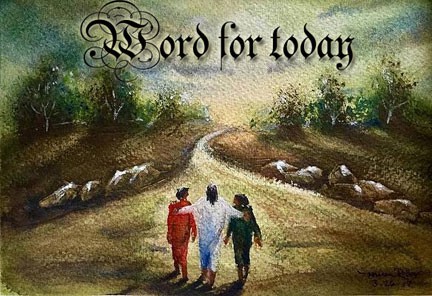Watch
Events
Articles
Market
More
Here's this week's Sabbath bulletin for First Fruits Ministries: https://firstfruits.cc/blog/20....25/10/23/sabbath-bul



Then he sent out a raven and it kept going back and forth until the waters were drying up from the land.
Genesis 8:7 TLV
Why a raven first? As a carrion eater, it would be satisfied with any piece of bare ground with something dead nearby, but Noah knew that there was some dry ground outside. Perhaps it was to make sure that all corruption had been washed away? The raven goes first to ensure that death is complete and the ground is ready to begin producing life.
I'm curious what others think.



102325 / 30th day of the 7th month 5786 or 1st day of the 8th month 5786
WORD FOR TODAY “do you deserve mercy”: Rom 9:14 What shall we say then? There is no injustice with God, is there? May it never be! Rom 9:15 For He says to Moses, "I WILL HAVE MERCY ON WHOM I HAVE MERCY, AND I WILL HAVE COMPASSION ON WHOM I HAVE COMPASSION." Rom 9:16 So then it does not depend on the man who wills or the man who runs, but on God who has mercy.
WISDOM FOR TODAY: Pro 21:12 The Righteous One observes the house of the wicked; he overthrows the wicked to their ruin.
Ask the LORD how you can serve HIM better
www.BGMCTV.org




Many know I have been advocating for getting outside and enjoying creations for a long time. https://www.bbc.com/news/articles/cvg0yvdjgn5o



Thought for Today: Thursday October 23
Blind Bartimaeus probably never expected to see – and then Yeshua Moshiach came to town! When He did, Bartimaeus cried out, and he cried out for the right thing: he cried out for mercy. He needed other things, but what he – like you and I – needed most of all, was YHVH’s mercy. Bartimaeus also cried out to the right Person, to Adonai our Moshiach. Yeshua was the only One in the world that could help him. Bartimaeus cried out at the right time. The Bible says: “Now is the time of YHVH’s favour, now is the day of Salvation” {2 Corinthians 6:2} Make today your day to cry out to Adonai our Moshiach.


